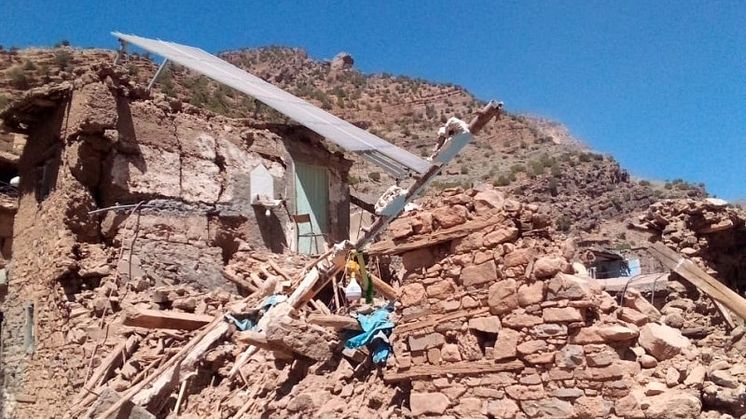
Nyhed -
Financial Times: ‘Western Security Depends on Rebuilding Morocco’
The outlet published an analysis arguing that cooperation with Morocco would provide Europe with invaluable insights into the complexities of the Sahel region.
Rabat - With Morocco being on a mission to rebuild its shattered communities in the wake of a devastating earthquake that has claimed nearly 3,000 lives, experts and commenters are urging Morocco’s Western partners to contribute significantly to the reconstruction efforts of an essential and reliable ally.
In a recent article for the Financial Times, Richard Shirreff, NATO’s former Deputy Supreme Allied Commander for Europe, wrote that Morocco’s ambitious reconstruction project is not only a testament to the resilience of the North African nation, but also underscores its role as a vital player in Africa’s economic development and regional stability.
The report argues that while natural disasters are hard to predict, security concerns are ever-present, and world leaders can take proactive measures to prevent security threats.
As the Western world acknowledges the importance of partnerships, it is imperative for them to look south, beyond Morocco, towards the Sahel, one of the most volatile regions on the planet.
“Without a proactive, long-term strategy that treats regional allies like Morocco with the seriousness we took so long to afford Ukraine, the situation will deteriorate,” Shirreff argued.
For decades, the Sahel region has grappled with successive military coups and regular attacks by insurgent groups, creating fertile ground for alliances between criminal networks, terrorist groups, human traffickers, and insurgents.
These conditions have fueled migration, with 4.2 million displaced people in the Sahel region attempting the perilous journey north and across the Mediterranean.
The expansion of criminal networks has stifled any prospects for development, whether in climate resilience, trade, education, political reform, or the empowerment of marginalized groups, the former NATO official argued, adding that sustainable stability cannot be imposed from the outside; it requires the active involvement of regional partners.
He drew attention to Morocco’s unique strategic position in its region, notably its effective migration management efforts and its widely applauded, efficient counter-terrorsim approach.
“Morocco is a uniquely positioned ally: even before this terrible disaster, we should have been far more closely engaged. As an intelligence and counter-terrorism partner, they have stopped more than 300 attempted attacks since 9/11,” he wrote. “On migration, over the past five years, they have taken down more than a thousand human trafficking networks and prevented upwards of 300,000 illegal crossings.”
Also highlighted in the article is Morocco’s Western-facing, Mediterranean orientation, which the author argued aligns with the values of “civic reform and economic development, with a record of promoting both across the [African] continent.”
King Mohammed VI’s mediation efforts and extensive peacekeeping deployments across the Sahel underscore Morocco’s commitment to regional stability, Shirreff argued.
He recalled that Morocco is the second-largest investor in African economic development and plays a critical role in ensuring food security on the continent arguing that cooperation with Morocco would provide Europe with invaluable insights into the complexities of the Sahel region.
On the Western Sahara dispute, the author stressed that Morocco’s autonomy plan, which is “supported by the US and other international allies as a solution to prolonged bouts of regional conflict — requires our attention as part of a considered strategy.”
It is essential for Western powers to recognize that “the future of the Sahel region should be shaped by those who inhabit it,” argued the Financial Times article, concluding that a failure to embrace this principle.
https://www.ft.com/content/94622649-97f4-4be0-ac04-c32da2b843a2
